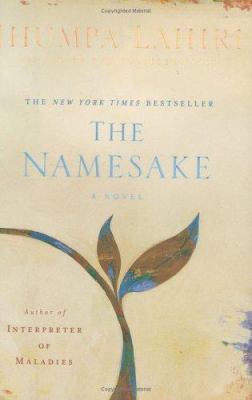
The Namesake, by Jhumpa Lahiri, is a very interesting book about identity and culture. The main character, Gogol struggles with his name. He defines his personality by his name ever since he was a child, and these issues carry with him throughout his life. These issues are mainly brought about by his culture. The significance of “pet name” and “good name”, major aspects of a person's life, as defined by his Indian culture, lead to Gogol feeling that names are more important than they are. In Indian culture, good names represent “dignified and enlightened qualities”, while pet names “have no such aspirations”. Names are significant in Indian culture, and therefore feel significant to Gogol. Also, his more obscure name that he never fully understands makes him more uncomfortable about his name, and is the root of most of his problems. When he thinks about his name, he realizes, “Not only does Gogol Ganguli have a pet name turned good name, but also a last name turned first name. And so it occurs to him that no one he knows in the world, in Russia or India or America or anywhere, shares his name”, an idea that makes him feel alone and different from everyone else.
Gogol’s troubles with his name follow him throughout major changes in his life, and he eventually reconciles with his name and heritage. On Gogol’s first day of kindergarten, facing the mounting stress and unease of assimilating into a new school and culture for the first time, his teacher asks him what he wants to be called. Uncomfortable with changing Nikhil, and creating a completely new “identity” at school, he remains with the name Gogol. At a time of drastic change in Gogol’s life, he feels overwhelmed by the idea of creating a new identity for himself. He frequently thinks back to this moment as a significant moment in his life, where he could have settled his name issues by choosing to be called Nikhil. Later on though, before he leaves for college, he decides to change his name to Nikhil. In his mind, this moment is a turning point in his life from Gogol to Nikhil. Similar to his transition into Kindergarten, his transition to college is a big step in his life, with the uncertainty of a new home and new friends. He also sees it as a transition away from his family heritage, as the name Gogol represents his family life. Excited for a new start, he feels that this name change will solve his internal struggles.
The idea of not being called Gogol gives him confidence and makes him feel different than in the past. The story follows Nikhil through his life from girlfriends to marriage, to divorce, but he never really feels settled. Eventually, at the end of the book, Gogol reconciles with his name. He finally decides to open up the book and learn about the name that troubled him for so long. This represents his acceptance and coming to terms with the name Gogol, and his heritage which he previously tried to push away. Throughout his life, his issues with his name and identity really never go away. From his relationships, and separation from his culture after college, to his father’s death, which brings him back deeper into his culture, he finds himself, by the end of the book, finally reading Gogol’s book. As he thinks of the future, he feels lonely, as “Without people in the world to call him Gogol, no matter how long he himself lives, Gogol Ganguli will, once and for all, vanish from the lips of loved ones, and so, cease to exist. Yet the thought of this eventual demise provides no sense of victory, no solace. It provides no solace at all.” He worries of the time when knowledge of Gogol dies off, and it only remains inside himself, with others around him unaware. While this book had some interesting points and ideas, it was not as interesting as other books I have read. I would recommend it to people who like to reflect on life.
Check out The Namesake at the Newport Beach Public Library.